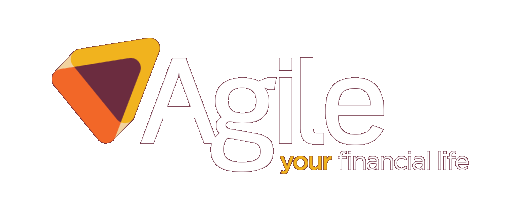If you want to help younger generations, passing on this pearl of wisdom could be key – start saving for your future as soon as possible.
Many people think about their legacy when setting out their long-term goals. You may have considered gifting during your lifetime or how you’d like assets to be distributed after you pass away. One area you might have overlooked is the positive effect your financial insights could have.
Your knowledge could have a huge effect on the long-term finances of your loved ones.
Indeed, a February 2025 survey from Aegon asked over-50s what they would tell their younger selves if they could time travel. Almost half of respondents said to “start saving as early as possible”.
In fact, the money tip ranked higher than “take care of your health”, “find a job you love”, and “spend more time with family”.
A wealth transfer could give your loved ones a helping hand, but knowledge might be just as important.
Long-term planning often plays an essential role in financial security
When asked about the lifestyle choices they regret, the survey suggests many over-50s wish they’d considered long-term finances earlier.
Respondents said they wish they knew more about how to invest and grow wealth (22%) and retirement planning (17%) at a younger age.
Research from Aviva published in March 2025 found a similar sentiment. Over-50s said they would tell their younger selves to:
- Clear debt (54%)
- Save an emergency fund (53%)
- Pay into a pension as soon as possible (52%).
In addition, respondents said they’d encourage their younger selves to spend less on material items, like cars or designer labels. Instead, they’d prioritise experiences, including travelling the world, and creating a financial safety net.
It’s not surprising that younger people are less likely to consider the long-term implications of their financial decisions. After all, it can seem like there’s plenty of time to think about retirement or other milestones.
So, passing on what you’ve learnt about managing finances could be valuable. As well as sharing regrets, it’s a great opportunity to talk to your loved ones about the actions that have had a positive effect on your lifestyle, too. That might be putting a small amount of your income into savings each month, investing, or overpaying your mortgage.
4 reasons to encourage your loved ones to start saving early
1. It could help them form positive money habits
Even if they don’t have financial goals right now, establishing positive money habits, such as setting out a budget, regularly contributing to a savings pot, or minimising debt, could lead to your loved ones laying a strong financial foundation.
2. It’s impossible to know what’s around the corner
Young people might be more likely to adopt a mindset of “it won’t happen to me”. It could mean they’re less compelled to put money aside for unexpected life events that could derail finances.
Yet, financial shocks, like losing your job or being diagnosed with an illness, could affect you at any life stage. So, encouraging your loved ones to start saving as soon as they can could enable them to create a robust financial safety net.
3. They could benefit from the compounding effect
Compounding is a powerful way to boost savings over time. Money placed in the bank will earn interest and, if it’s left untouched, the interest added will rise each time it’s calculated.
Imagine you place £1,000 in a savings account with a 5% annual interest rate. If you leave the interest earned in the account, your money would grow by:
- £50 to £1,050 in year one
- £52 to £1,102 in year two
- £56 to £1,158 in year three.
By year 10, the total amount in your savings account would be £1,628.
The compounding effect may also apply to investing, including through an ISA or pension.
So, by starting as soon as possible, your family could benefit from years, or even decades, of the compounding effect.
4. It could help them think about their life goals
Putting money to one side for the future could trigger your loved ones to consider what they want to achieve, from raising a family to starting a business.
Setting a direction might enable them to make better financial decisions that support their goals.
Get in touch to make your loved ones part of your financial plan
If one of your goals is to support your loved ones, incorporating them into your financial plan may be useful. You might want to consider how gifts during your lifetime may help them reach their aspirations or create an estate plan that reflects this.
In addition, we could also work with your family members to build a tailored financial plan for them, which could help them balance short-term needs and long-term financial security.
Please get in touch to arrange a meeting with our team.
Please note: This blog is for general information only and does not constitute financial advice, which should be based on your individual circumstances. The information is aimed at retail clients only.
A pension is a long-term investment not normally accessible until 55 (57 from April 2028). The fund value may fluctuate and can go down, which would have an impact on the level of pension benefits available. Past performance is not a reliable indicator of future performance.
The tax implications of pension withdrawals will be based on your individual circumstances. Thresholds, percentage rates, and tax legislation may change in subsequent Finance Acts.
The value of your investments (and any income from them) can go down as well as up and you may not get back the full amount you invested. Past performance is not a reliable indicator of future performance.
Investments should be considered over the longer term and should fit in with your overall attitude to risk and financial circumstances.










